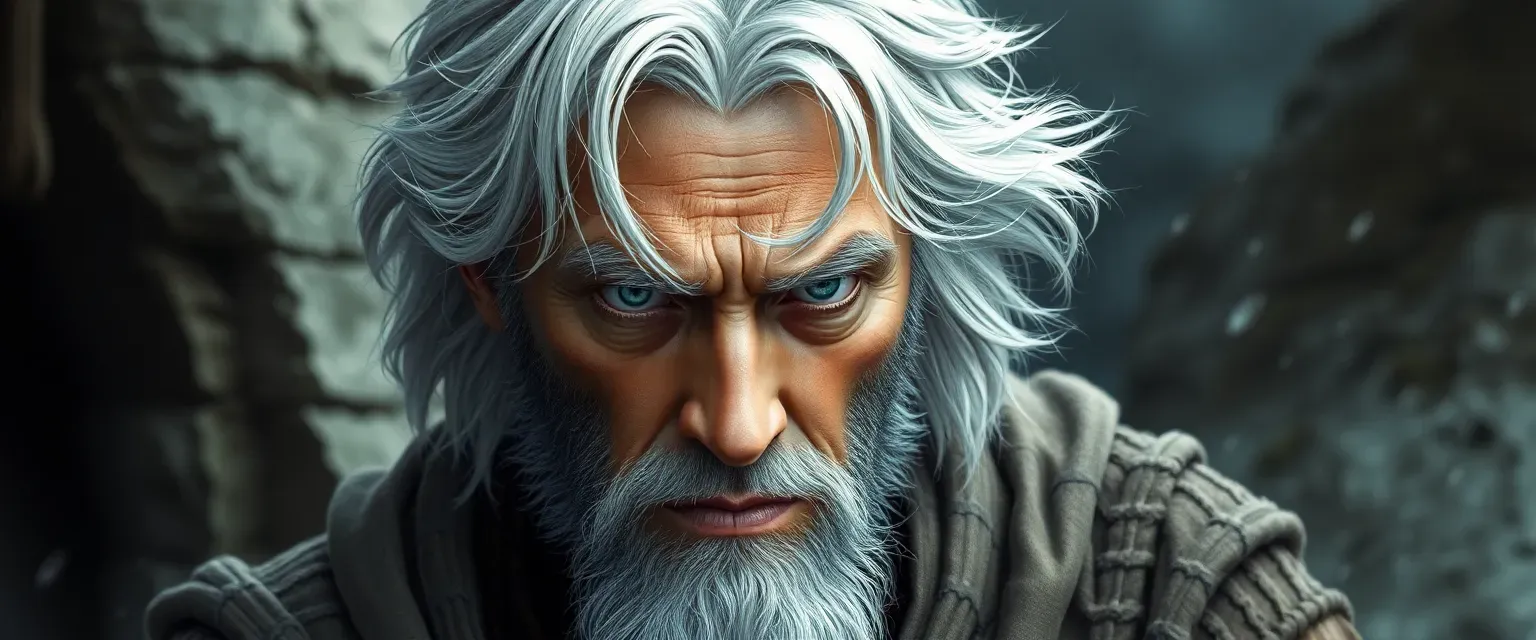Father Arlo, a man in his late fifties, stands as a figure shrouded in the perpetual twilight that has enveloped the town. His once vibrant hair has turned a stark silver, matching the pallor of his skin, which seems to absorb the dim light rather than reflect it. His eyes, a deep, unyielding gray, are often fixed in a distant gaze, as if peering into a realm beyond the veil of the mundane. He dons the traditional garb of his faith, but the once pristine robes are now tattered at the edges, stained with the dust of the town and the ink of his fervent writings.
Arlo's obsession with the town's eternal twilight began as a quest for understanding, a desire to uncover the divine test he believed was laid before him. As the days melded into nights without distinction, his quest morphed into a desperate need to control the darkness that he felt encroaching upon his soul. The voice from the void became his confidant, promising power in exchange for embracing the darkness within. This promise fueled his actions, leading him to herd the townspeople into a single house, sealing them away under the guise of protection.
His intelligence and theological knowledge, once used for guidance, now served his twisted purpose. He constructed the Reliquary, a monument to his newfound faith in the void, and performed rituals that he believed would merge him with the darkness. His final entry, scribbled in a frenzy, declared his transformation complete; he had become one with the darkness, a vessel for the entity he had summoned.
Father Arlo's life was a tapestry of internal and external conflicts. His faith, once a source of light, became his downfall as he wrestled with the voice that promised power. The townspeople, once his flock, became pawns in his dark game, their lives sacrificed to his obsession. In the end, Arlo's quest for understanding and control led him to a fate intertwined with the very darkness he sought to master, leaving behind a town forever altered by his actions.
